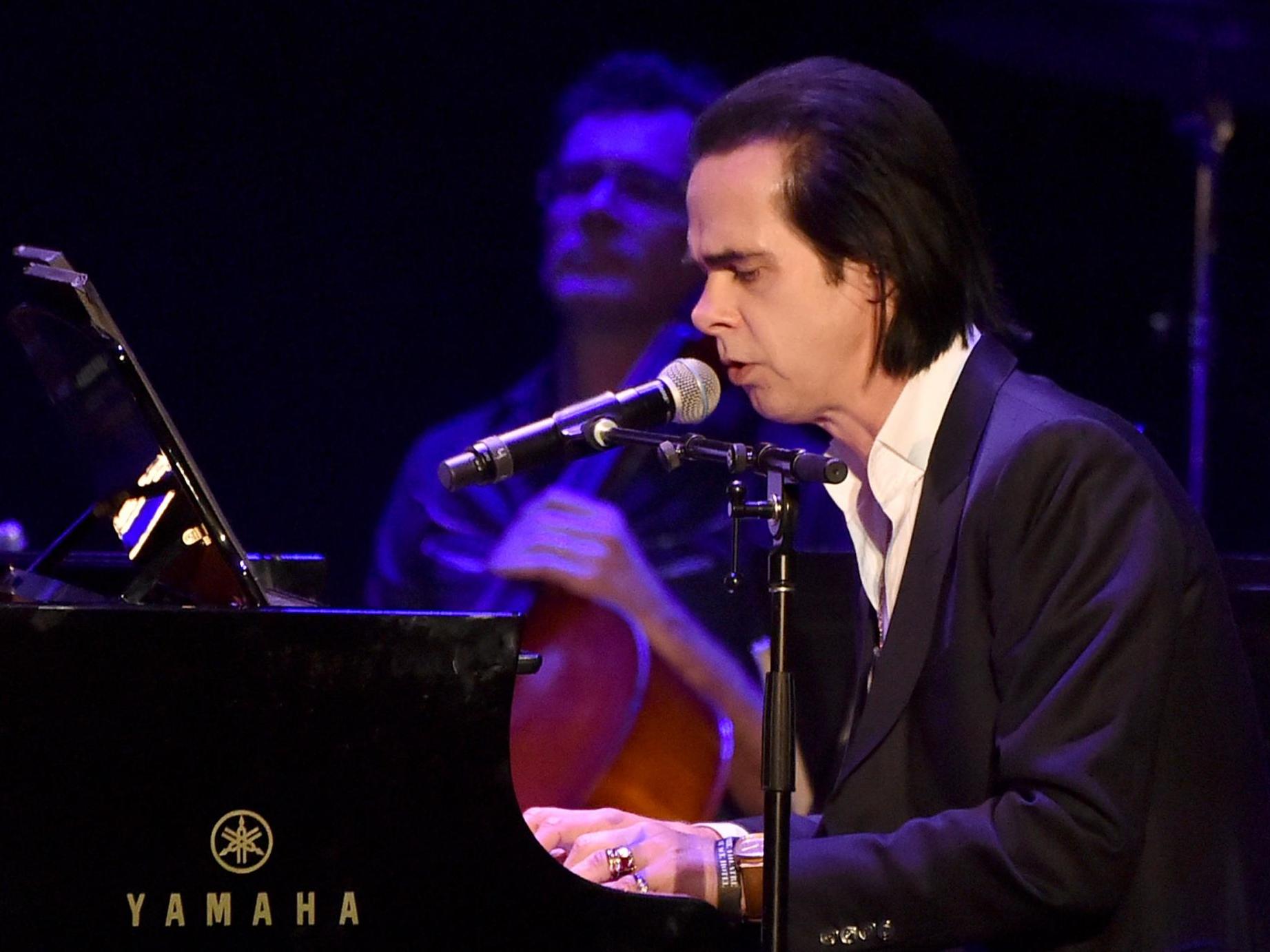How Nick Cave’s ‘Conversations’ and Dave at Glastonbury show that fame doesn’t mean you have to be aloof
In our latest arts column, Fiona Sturges explores the sea change in celebrity since the days of Lady Gaga’s meat dress


There was a time when you knew where you were with pop stars – by that I mean that they were up on a pedestal and at a respectable distance from us, their peasant acolytes. The gulf between fans and their favourite musicians seemed important: to be close enough to them to inspect their acne was to deny their existence on a higher plane, and that just wouldn’t do.
I say this as a writer and interviewer who has been close enough to inspect plenty of pop star pimples. At the risk of sounding insufferable, I am mostly inured to the concept of celebrity, and have no patience with displays of high and mightiness. Even so, I was startled last week in Brighton when, at Conversations with Nick Cave – an evening of music and talk in which fans are encouraged to ask the singer questions – the conversation turned to plumbing. “Hi Nick,” said a woman in the stalls, “I live in your old flat in Hove. Do you know where the stopcock is?” Reader, he did not, though his WTF face was glorious.
Watching Cave, music’s harbinger of the apocalypse, discussing everything from his grief for his late son, Arthur, and the pain of the creative process, to his dislike of flip-flops and his wife’s habit of rearranging furniture, was at once electrifying and discombobulating. This is a man who has deliberately kept fans at arm’s length for a full 40 years (he once referred to his Birthday Party audience as “moronic”) now reflecting on his domestic life, sharing his agonies, and engaging in what was essentially a mass therapy session, albeit one laced with humour. I wasn’t the only person who felt the weirdness of witnessing Cave’s human side: when one fan expressed her surprise that this once otherworldly figure would catch a train to London, Cave asked: “How did you think I’d get there?” “I dunno,” came the reply. “A hearse?”
Our 21st century expectations of pop stars are varied and complicated. Once they were required simply to perform, put out albums with reasonable regularity and do the odd press interview. Nowadays they are variously expected to be artists, role models, crusaders, rebels, influencers and entrepreneurs. Sometimes they are all these things at once. In the age of Instagram, there is no retreating from view between tours and releases, at least not if you want to keep your career on track. From Madonna and Kanye to Nicki Minaj and Cardi B, our pop luminaries have transformed into chronic over-sharers via their social media feeds, compelled to prattle on not just about their creative endeavours but often their family lives, their political sympathies or, if only to pick fights, their rivals.
Has all this come at the expense of mystery? Nearly a decade ago I interviewed Lady Gaga, post-“Poker Face” and shortly before her manifestation in a meat dress. She had spent the previous year performing and appearing in outré outfits, and seemed to regard herself as a living, breathing work of art. Her heroes were Bowie and Warhol, men who understood more than most about the artifice and fantasy of fame. I asked her if she ever ditched the costumes and spent the day in jogging bottoms and a baggy sweater. She was horrified. To let the mask slip, she said, would be to deny her artistic raison d’être and betray her fans. It sounded exhausting but her dedication to the cause was admirable.

There has been a sea-change in our attitude to icons since then; in our brave new world of music, ordinariness is more likely to be celebrated and and perceived authenticity exalted. How else to explain the runaway success of Ed Sheeran, Rag’n’Bone Man, George Ezra or Lewis Capaldi? It is perhaps a reaction to nearly 20 years of TV talent shows, in which pop stars are created, packaged up and sent out into the world before our eyes, that fans are looking for a more organic brand of musician whose acoustic guitars, plaid shirts and woolly hats signify their years of creative struggle.
But while the studied dreariness of many of today’s musicians may seem a depressing turn of events, the increased desire to commune with fans, and treat them as equals rather than irritants, is perhaps a more positive development. Certainly, the British rapper Dave’s openness to bringing a fan up on stage to perform with him last week at Glastonbury reaped rewards for all concerned.
Nick Cave’s new and relatable approach to performance, prompted by personal grief and his website Red Hand Files, through which he has spent the past year responding to questions posted by fans, shows us the ways in which our heroes can influence us and we, in turn, can influence them. It reveals that creativity needn’t happen in a vacuum but can be a two-way street. Crucially, it shows us that music and mystery aren’t the only ingredients for an interesting pop career, and that fame needn’t turn you into an arsehole.
Join our commenting forum
Join thought-provoking conversations, follow other Independent readers and see their replies
Comments